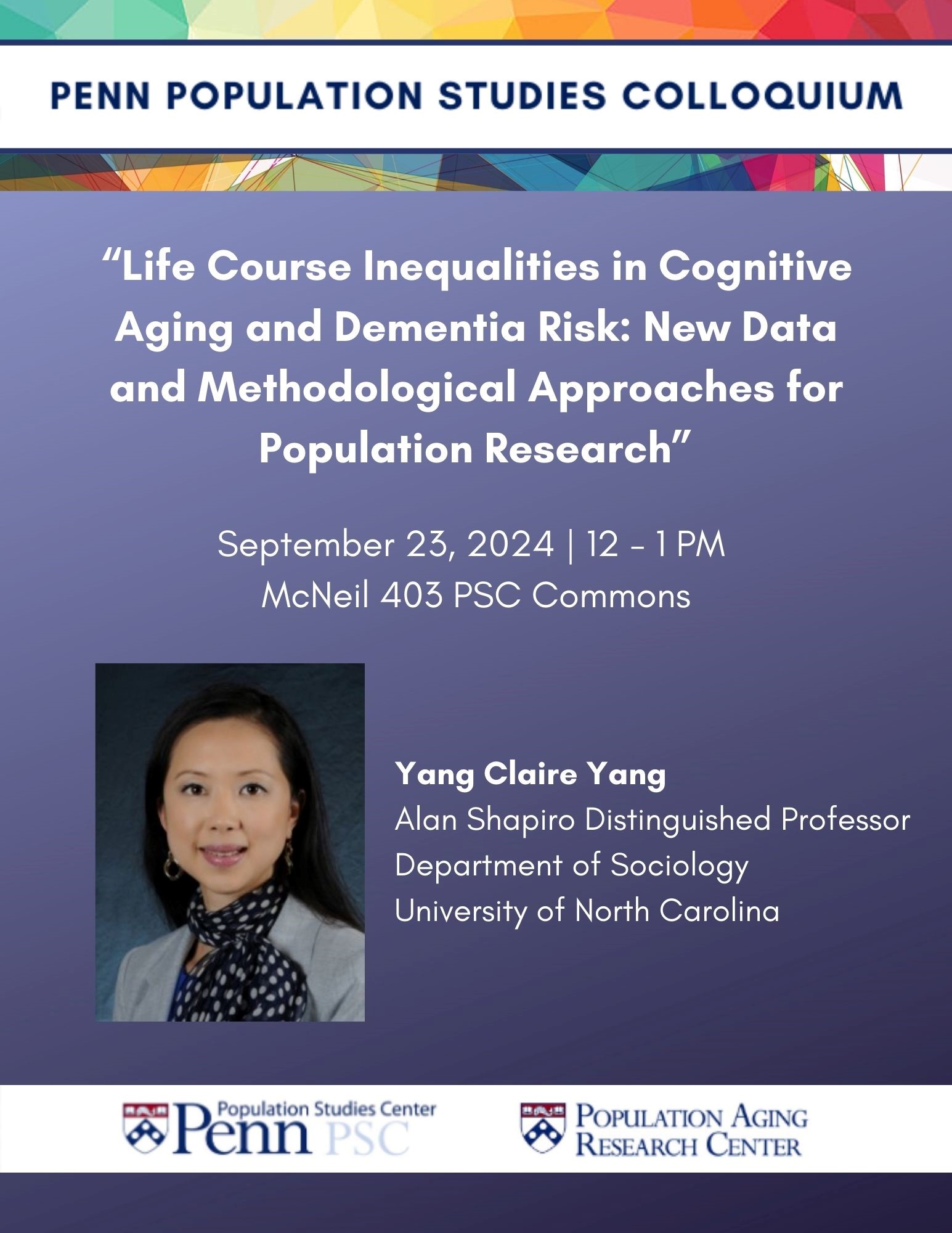Event
Yang Claire Yang, PhD
Dr. Yang is the Alan Shapiro Distinguished Professor at the Department of Sociology and the Lineberger Comprehensive Cancer Center, and Fellow of the Carolina Population Center and Carolina Center for Population Aging and Health at the University of North Carolina at Chapel Hill. She is a demographer, medical sociologist, and social statistician interested in population health, aging and the life course, and quantitative methodology. She has extensive expertise on the demography and social biology of aging and health and new statistical methodologies of cohort anlaysis for interdisciplinary population health sciences. Her recent NIA-funded research brought integrative biosocial theoretical perspectives to bear on the analysis of diverse forms of big health data (e.g., vital statistics, household surveys, clinical biomarkers, and administrative records) and revealed new knowledge about social disparities and underlying biological mechanisms in life course trajectories of chronic diseases of aging. Her current research focuses on innovative life course resesarch designs and methodologies of complex coordinated anlaysis and integrative data analysis of multiple longiutidnal cohort studies. She and her team recently employed novel integrative data and methods to model cognitive aging across the full life span, reveal early and midlife social disadvantages (socioeconomic and social relationship deficits) that are associated with cognitive declines with aging, and explicate the biological pathways (inflammation, cardiometabolic dysregulation, chronic infection) linking social disadvantages with cognitive impairment over the life course. (https://www.cpc.unc.edu/people/fellows/y-claire-yang/)
